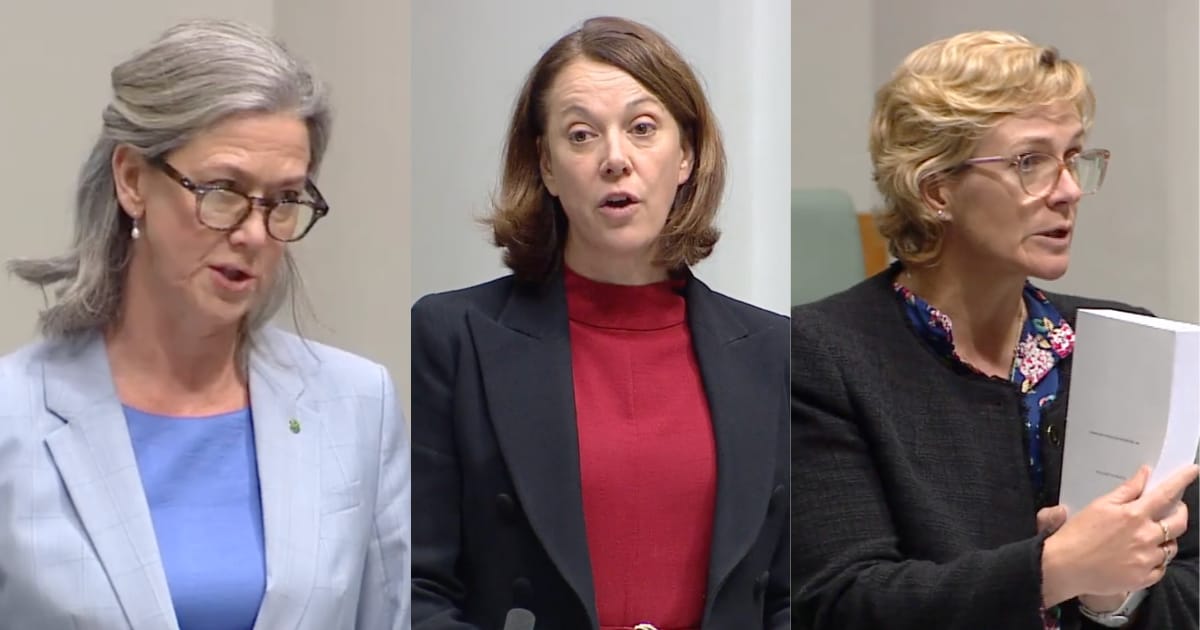Why North Shore MPs voted against Labor’s “once-in-a-generation” environmental reforms
Between loopholes, deforestation, and climate change, crossbenchers spent most of Thursday's session of parliament lambasting Labor’s proposed reforms.

As a long-awaited overhaul of our environmental laws faced Parliament on Thursday, many representatives across the North Shore voted against the reform package.
Why?
Short answer: they don’t do enough.
Voters expect action: Climate change was front of mind for many voters during the federal election in May. Results reflected these concerns, with representatives promising strong action on climate elected across the region.
Reforms to Australia’s federal environmental laws have been on the horizon since Professor Graeme Samuel’s independent review was handed down in 2020. That review declared the current laws to be ineffective and inadequate.
Long time coming: While the need for environmental reform has been a widely accepted fact, independent representatives of the North Shore — Nicolette Boele, Zali Steggall, and Sophie Scamps — voted against these reforms.
Explain yourself: In parliament on Thursday, these independents laid out their reasoning for this decision:
The draft bill favours business interests over environmental concerns,
Fails to consider climate change as a serious threat to our natural environment
Provides too many loopholes for regulations to be circumvented.
Exemption and loopholes: Critics of the bill have raised multiple issues, like the inclusion of an exemption for projects of “national interest”.
According to the bill's explanatory memorandum, the loophole will allow projects to go ahead, “even if they do not meet all environmental standards”.
The Centre for Public Integrity, an independent think tank, has raised concerns about the specific definitions of this exemption and how something is decided to be in the “national interest”.
Bradfield MP Nicolette Boele echoed this sentiment in parliament on Wednesday.
“So far, the proposed law fails to define what projects could qualify for this exemption”, she said. “Too often, the national interest is falsely conflated with coal and gas industry and their commercial interests.”
Logging gets off: The reforms have also been criticised for the vast exemptions they provide for logging and land clearing.
Areas in which Regional Forestry Agreements are in effect have previously been exempt from federal environment laws.
This means logging and land clearing that endangers native wildlife can go ahead without seeking federal approval. This will continue to be exempt under the drafted reforms.
The Member for Mackellar, Dr. Sophie Scamps, proposed an amendment on Thursday to remove this exemption, saying Australia is facing a “deforestation crisis” and that “we are the only developed nation on the global list of deforestation hot spots.”
The amendment was voted down.
Protection laws: Currently, Australia’s environmental protection laws require any new fossil fuel projects to be referred to the Minister for Environment for approval if they could impact any of a list of nine “matters of national environmental significance”.
These matters include things like world heritage properties, water resources, threatened species, or any nuclear related activities such as uranium mining.
Climate, however, is not one of these nine.
Environmental groups, the Greens, and independents such as Warringah MP Zali Steggall have repeatedly called for the inclusion of climate in these impacts.
“Fundamentally, we cannot have an environmental legislation that is separated from climate impacts”. Steggall said in Parliament on Thursday.
“Inherently, the two are interconnected.”